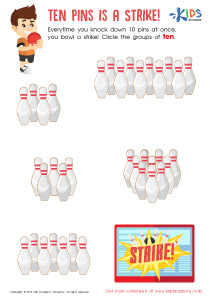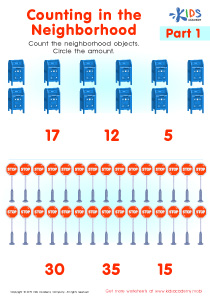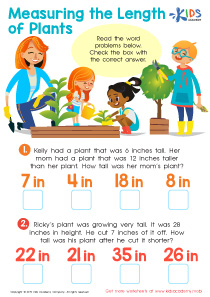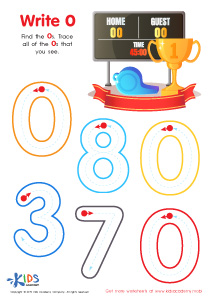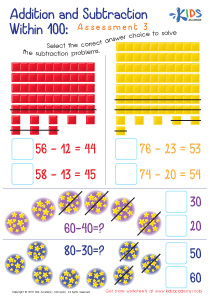Hand-eye Coordination Easy Numbers 11–20 Worksheets for Ages 5-6
3 filtered results
-
From - To
Enhance your child's learning experience with our Hand-eye Coordination Easy Numbers 11–20 Worksheets, designed specifically for ages 5-6. These engaging worksheets promote essential hand-eye coordination skills while introducing young learners to numbers beyond 10. Children will enjoy a variety of fun activities that combine counting, tracing, and visual recognition, fostering both cognitive development and motor skills. Perfect for homeschooling or classroom settings, these worksheets provide an interactive way to reinforce number recognition and the basics of math. Let your child explore the exciting world of numbers with our thoughtfully crafted exercises that make learning enjoyable and effective!
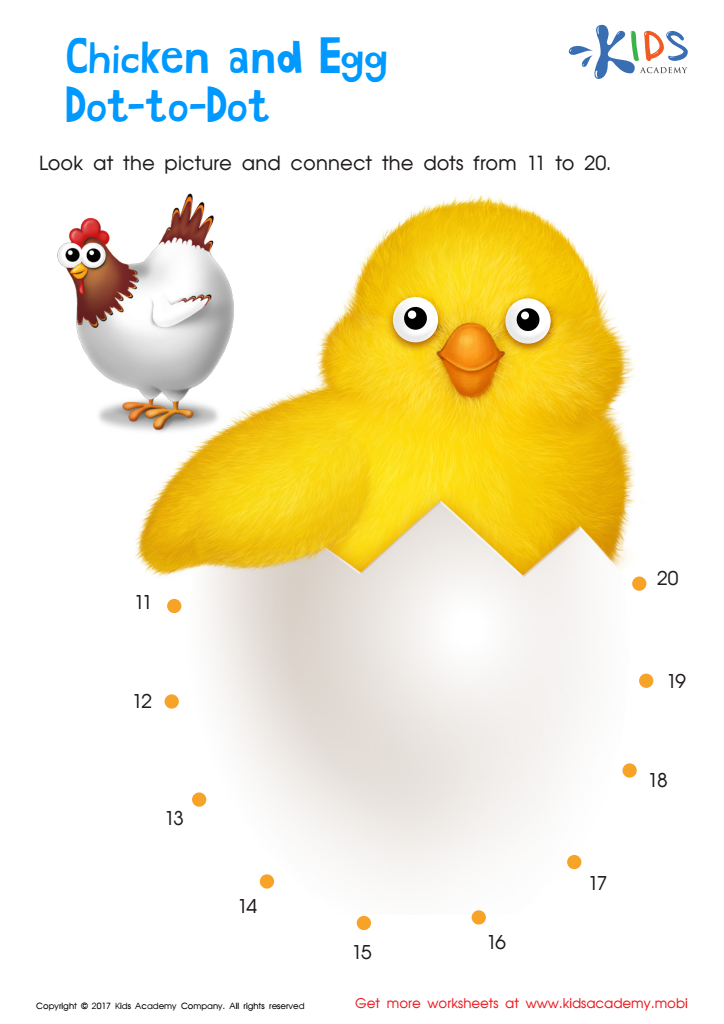

Ordering 11–20: Chicken & Egg Dot–to–dot Worksheet
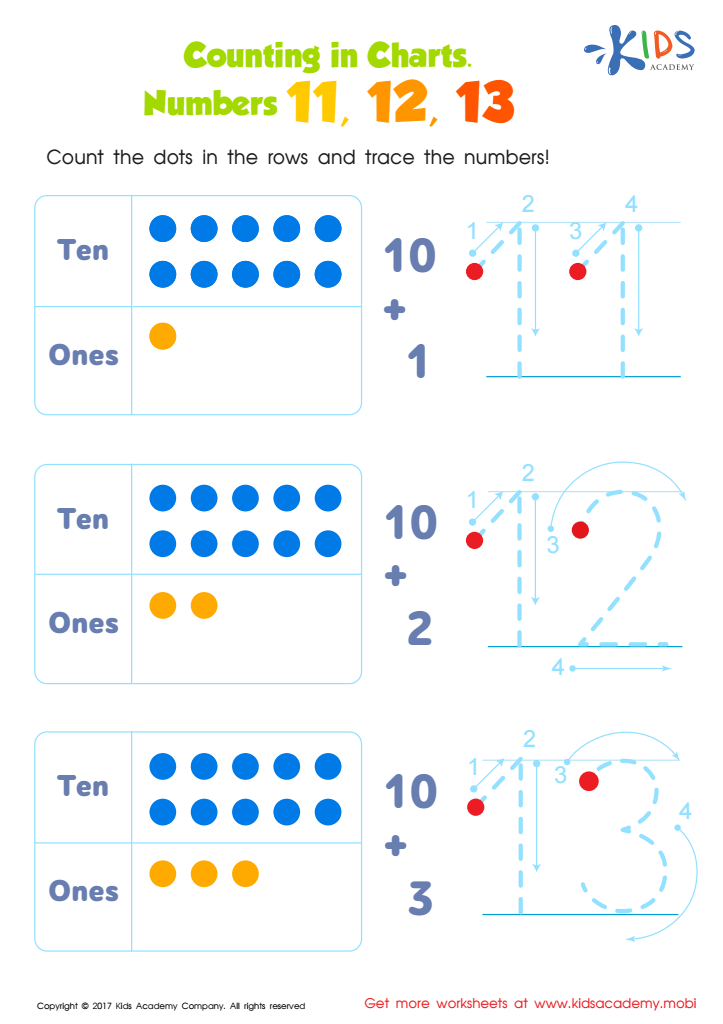

Number Tracing Worksheet For Kindergarten
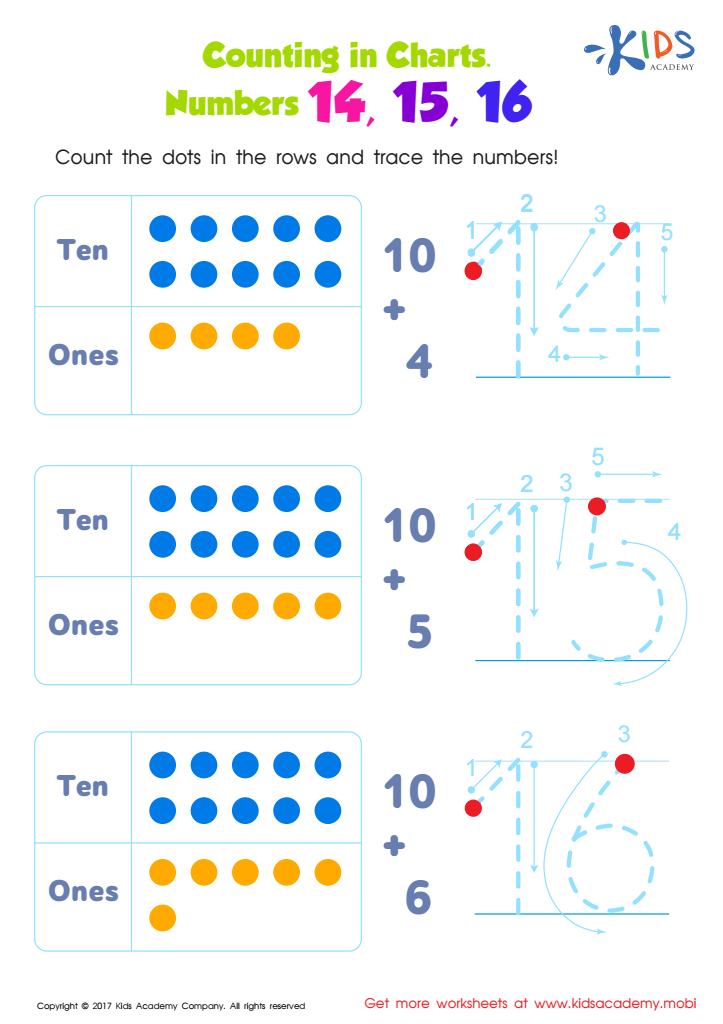

Number Tracing Worksheet
Hand-eye coordination is a crucial skill for young children, particularly from ages 5 to 6, as it significantly impacts their overall development, including motor skills, cognitive abilities, and everyday tasks. Task activities like counting with Easy Numbers 11-20 engage children in interactive learning, allowing them to practice coordination while reinforcing mathematical concepts. This age is a formative period where foundational skills are built, and strong hand-eye coordination facilitates tasks such as writing, drawing, and using tools, which are vital in academic and social settings.
Encouraging development in coordination helps children gain confidence in their abilities, promoting a positive attitude towards learning. Activities that combine hand-eye coordination with numbers can make learning engaging and fun, further motivating children to participate actively. Enhanced coordination also influences social interactions as children gain proficiency in games and activities that require physical participation.
For parents and teachers, recognizing the importance of nurturing these skills can lead to better preparedness for future academic challenges. Incorporating structured play and hands-on activities around Easy Numbers 11–20 supports literacy and numeracy, and helps lay the groundwork for more complex learning in the years to come. Ultimately, investing in these skills at a young age fosters a love for learning and increases a child’s success in school.
 Assign to My Students
Assign to My Students






